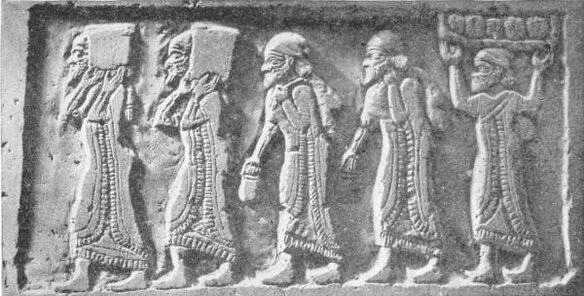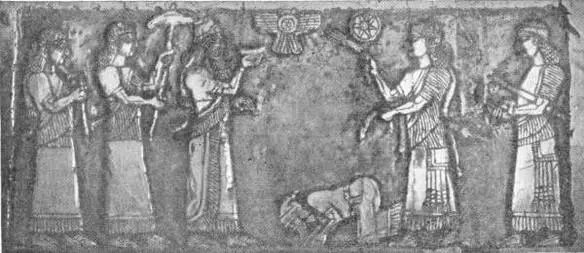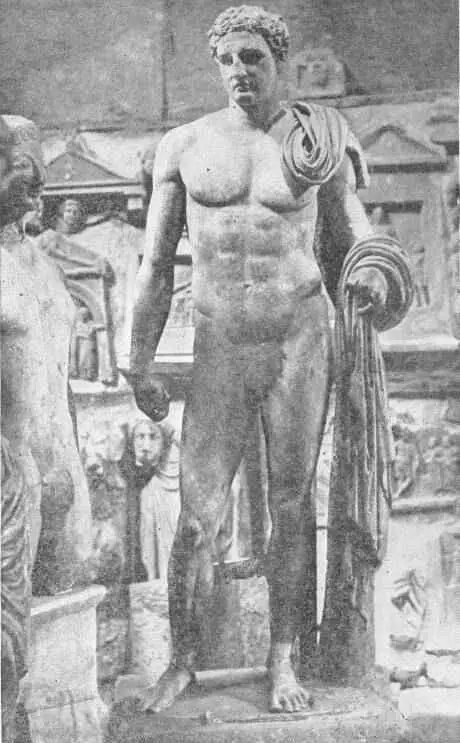Herbert Wells - A Short History of the World
Здесь есть возможность читать онлайн «Herbert Wells - A Short History of the World» весь текст электронной книги совершенно бесплатно (целиком полную версию без сокращений). В некоторых случаях можно слушать аудио, скачать через торрент в формате fb2 и присутствует краткое содержание. Год выпуска: 2011, Жанр: История, на английском языке. Описание произведения, (предисловие) а так же отзывы посетителей доступны на портале библиотеки ЛибКат.
- Название:A Short History of the World
- Автор:
- Жанр:
- Год:2011
- ISBN:нет данных
- Рейтинг книги:4 / 5. Голосов: 1
-
Избранное:Добавить в избранное
- Отзывы:
-
Ваша оценка:
- 80
- 1
- 2
- 3
- 4
- 5
A Short History of the World: краткое содержание, описание и аннотация
Предлагаем к чтению аннотацию, описание, краткое содержание или предисловие (зависит от того, что написал сам автор книги «A Short History of the World»). Если вы не нашли необходимую информацию о книге — напишите в комментариях, мы постараемся отыскать её.
A Short History of the World — читать онлайн бесплатно полную книгу (весь текст) целиком
Ниже представлен текст книги, разбитый по страницам. Система сохранения места последней прочитанной страницы, позволяет с удобством читать онлайн бесплатно книгу «A Short History of the World», без необходимости каждый раз заново искать на чём Вы остановились. Поставьте закладку, и сможете в любой момент перейти на страницу, на которой закончили чтение.
Интервал:
Закладка:
And this mental welding of the Jews was neither planned nor foreseen nor done by either priests or statesmen. Not only a new kind of community but a new kind of man comes into history with the development of the Jews. In the days of Solomon the Hebrews looked like becoming a little people just like any other little people of that time clustering around court and temple, ruled by the wisdom of the priest and led by the ambition of the king. But already, the reader may learn from the Bible, this new sort of man of which we speak, the Prophet, was in evidence.
As troubles thicken round the divided Hebrews the importance of these Prophets increases.

THE BLACK OBELISK OF SHALMANESER II
This obelisk (in the British Museum) of the King of Assyria mentions, in cuneiform, “Jehu the son of Omri.” Panel showing Jewish captives bringing tribute
What were these Prophets? They were men of the most diverse origins. The Prophet Ezekiel was of the priestly caste and the Prophet Amos wore the goatskin mantle of a shepherd, but all had this in common, that they gave allegiance to no one but to the God of Righteousness and that they spoke directly to the people. They came without licence or consecration. “Now the word of the Lord came unto me;” that was the formula. They were intensely political. They exhorted the people against Egypt, “that broken reed,” or against Assyria or Babylon; they denounced the indolence of the priestly order or the flagrant sins of the King. Some of them turned their attention to what we should now call “social reform.” The rich were “grinding the faces of the poor,” the luxurious were consuming the children’s bread; wealthy people made friends with and imitated the splendours and vices of foreigners; and this was hateful to Jehovah, the God of Abraham, who would certainly punish this land.

ANOTHER PANEL OF THE BLACK OBELISK
Captive Princes making obeisance to Shalmaneser II
These fulminations were written down and preserved and studied. They went wherever the Jews went, and wherever they went they spread a new religious spirit. They carried the common man past priest and temple, past court and king and brought him face to face with the Rule of Righteousness. That is their supreme importance in the history of mankind. In the great utterances of Isaiah the prophetic voice rises to a pitch of splendid anticipation and foreshadows the whole earth united and at peace under one God. Therein the Jewish prophecies culminate.
All the Prophets did not speak in this fashion, and the intelligent reader of the prophetic books will find much hate in them, much prejudice, and much that will remind him of the propaganda pamphlets of the present time. Nevertheless it is the Hebrew Prophets of the period round and about the Babylonian captivity who mark the appearance of a new power in the world, the power of individual moral appeal, of an appeal to the free conscience of mankind against the fetish sacrifices and slavish loyalties that had hitherto bridled and harnessed our race.
XXIII
THE GREEKS
NOW while after Solomon (whose reign was probably about 960 B.C.) the divided kingdoms of Israel and Judah were suffering destruction and deportation, and while the Jewish people were developing their tradition in captivity in Babylon, another great power over the human mind, the Greek tradition, was also arising. While the Hebrew prophets were working out a new sense of direct moral responsibility between the people and an eternal and universal God of Right, the Greek philosophers were training the human mind in a new method and spirit of intellectual adventure.
The Greek tribes as we have told were a branch of the Aryan- speaking stem. They had come down among the Ægean cities and islands some centuries before 1000 B.C. They were probably already in southward movement before the Pharaoh Thothmes hunted his first elephants beyond the conquered Euphrates. For in those days there were elephants in Mesopotamia and lions in Greece.
It is possible that it was a Greek raid that burnt Cnossos, but there are no Greek legends of such a victory though there are stories of Minos and his palace (the Labyrinth) and of the skill of the Cretan artificers.

STATUE OF MELEAGER
Note the progress in plastic power from the earlier wooden statue on left
Photo: Sebah & Foaillier
Like most of the Aryans these Greeks had singers and reciters whose performances were an important social link, and these handed down from the barbaric beginnings of their people two great epics, the Iliad , telling how a league of Greek tribes besieged and took and sacked the town of Troy in Asia Minor, and the Odyssey , being a long adventure story of the return of the sage captain, Odysseus, from Troy to his own island. These epics were written down somewhen in the eighth or seventh century B.C., when the Greeks had acquired the use of an alphabet from their more civilized neighbours, but they are supposed to have been in existence very much earlier. Formerly they were ascribed to a particular blind bard, Homer, who was supposed to have sat down and composed them as Milton composed Paradise Lost. Whether there really was such a poet, whether he composed or only wrote down and polished these epics and so forth, is a favourite quarrelling ground for the erudite. We need not concern ourselves with such bickerings here. The thing that matters from our point of view is that the Greeks were in possession of their epics in the eighth century B.C., and that they were a common possession and a link between their various tribes, giving them a sense of fellowship as against the outer barbarians. They were a group of kindred peoples linked by the spoken and afterwards by the written word, and sharing common ideals of courage and behaviour.
The epics showed the Greeks a barbaric people without iron, without writing, and still not living in cities. They seem to have lived at first in open villages of huts around the halls of their chiefs outside the ruins of the Ægean cities they had destroyed. Then they began to wall their cities and to adopt the idea of temples from the people they had conquered. It has been said that the cities of the primitive civilizations grew up about the altar of some tribal god, and that the wall was added; in the cities of the Greeks the wall preceded the temple. They began to trade and send out colonies. By the seventh century B.C. a new series of cities had grown up in the valleys and islands of Greece, forgetful of the Ægean cities and civilization that had preceded them; Athens, Sparta, Corinth, Thebes, Samos, Miletus among the chief. There were already Greek settlements along the coast of the Black Sea and in Italy and Sicily. The heel and toe of Italy was called Magna Græcia. Marseilles was a Greek town established on the site of an earlier Phœnician colony.
Now countries which are great plains or which have as a chief means of transport some great river like the Euphrates or Nile tend to become united under some common rule. The cities of Egypt and the cities of Sumeria, for example, ran together under one system of government. But the Greek peoples were cut up among islands and mountain valleys; both Greece and Magna Græcia are very mountainous; and the tendency was all the other way. When the Greeks come into history they are divided up into a number of little states which showed no signs of coalescence. They are different even in race. Some consist chiefly of citizens of this or that Greek tribe, Ionic, Æolian or Doric; some have a mingled population of Greeks and descendants of the pre-Greek “Mediterranean” folk; some have an unmixed free citizenship of Greeks lording it over an enslaved conquered population like the “Helots” in Sparta. In some the old leaderly Aryan families have become a close aristocracy; in some there is a democracy of all the Aryan citizens; in some there are elected or even hereditary kings, in some usurpers or tyrants.
Читать дальшеИнтервал:
Закладка:
Похожие книги на «A Short History of the World»
Представляем Вашему вниманию похожие книги на «A Short History of the World» списком для выбора. Мы отобрали схожую по названию и смыслу литературу в надежде предоставить читателям больше вариантов отыскать новые, интересные, ещё непрочитанные произведения.
Обсуждение, отзывы о книге «A Short History of the World» и просто собственные мнения читателей. Оставьте ваши комментарии, напишите, что Вы думаете о произведении, его смысле или главных героях. Укажите что конкретно понравилось, а что нет, и почему Вы так считаете.








